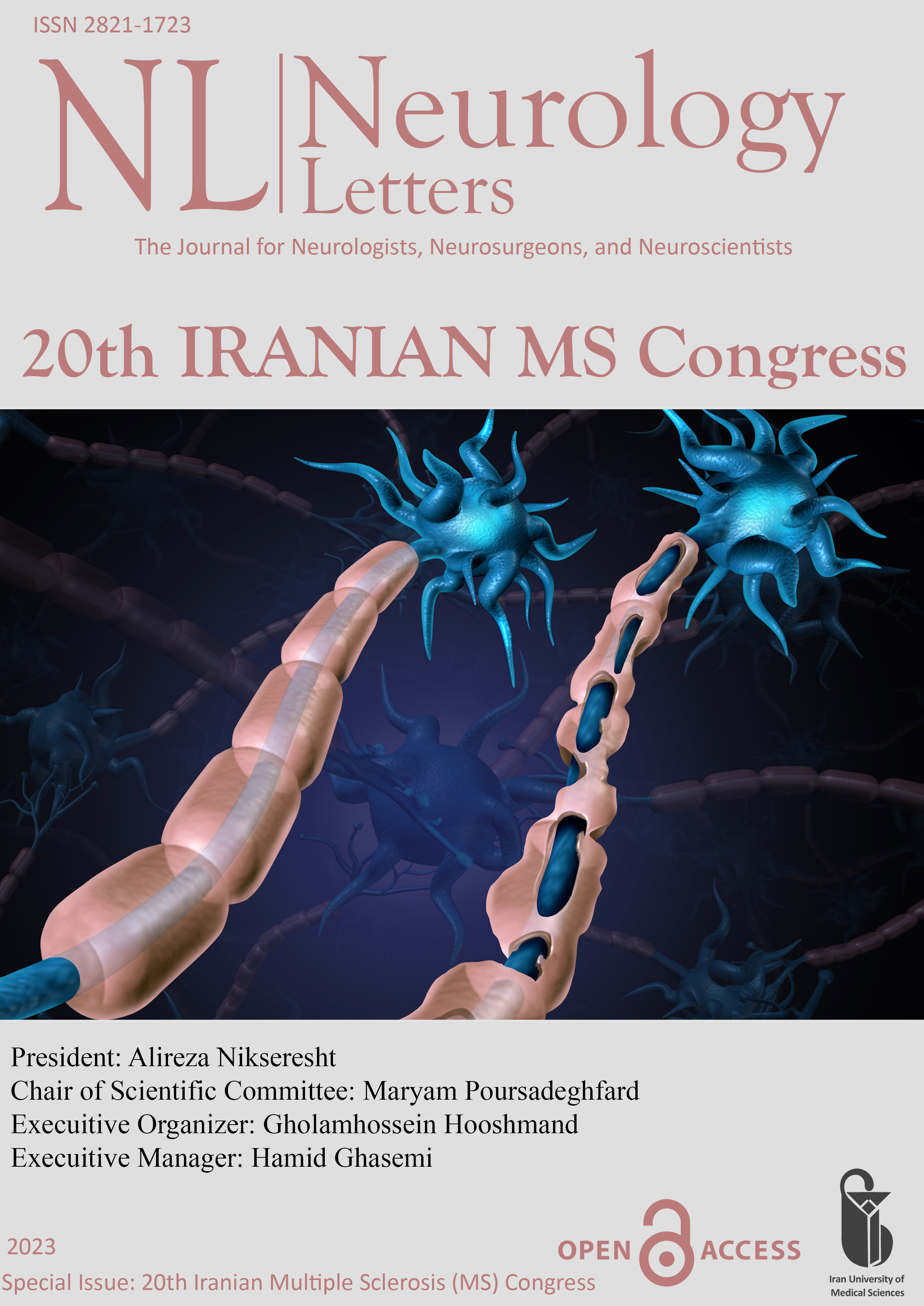Comorbidity in patients with MS (ORP-19)
Document Type : Oral Presentation
Author
Department of Neurology, Isfahan University of medical sciences, Isfahan, Iran
Abstract
Numerous comorbidities are common in patients with multiple sclerosis (PwMS). Comorbidity is one of the important concerns of clinicians because can obscure or delay MS diagnosis and can affect the disease course. Therefore, notice of comorbidities is important for improving the quality of life and optimizing treatment.
Depression, anxiety, cardiovascular disease, epilepsy, metabolic disease, autoimmune diseases, and sleep disorders are the most common comorbidities in PwMS.
Cardiovascular disorders such as abnormalities in blood pressure, heart rate, heart rhythm, and left ventricular systolic function are common in PwMS and have been reported as the second or third most common cause of death in these patients.
There is evidence that vascular risk factors and vascular comorbidities are associated with faster progression of disability, including both physical and cognitive. In addition, comorbid metabolic conditions, such as diabetes, hypertension, and hyperlipidemia, are typically elevated in the MS population and co-occur with cardiovascular disease. The elevated prevalence of metabolic disorders may worsen disease in PwMS, but the frequency of metabolic comorbidities in PwMS is still not fully understood.
The most common Psychiatric problem in PwMS are depression and anxiety and bipolar disorders that are associated with fatigue and reduced Quality of Life(QoL) and may impact adherence to DMT. Early recognition and management of psychiatric disorders could help to determine optimal treatment, ensuring better long-term outcomes.
RLS an irresistible urge to move the legs is more frequent in PwMS than the general population and can disturb sleep and QoL. The mechanism of RLS in MS is not fully understood but may involve aberrant signaling in the dopaminergic system caused by demyelinating or neurodegenerative damage to the diencephalon-spinal tract.
MS has common risk factors and immunopathologic mechanisms with other autoimmune diseases (AID). Common coexist AID with MS include psoriasis, asthma, type 1 diabetes autoimmune thyroiditis, celiac disease, Sjogren’s syndrome, inflammatory bowel disease (IBD), rheumatoid arthritis, systemic lupus erythematosus, and atopic dermatitis.
Early diagnosis and management of Comorbidities is important because some of them have an adverse influence on outcome.
Various comorbidities were associated with disability and clinical features of disease progression in PwMS: RLS with faster clinical progression, migraine with a more symptomatic course of disease, hypertension with structural brain changes, asthma, and rheumatoid arthritis with more relapse in PwMS.
Furthermore, it is important to notice that DMT use may also increase the risk of comorbidity in PwMS. Triflunamide may increase blood pressure and there are some reports that showed an increased prevalence of cardiovascular risk factors, including elevated diastolic blood pressure and plasma glucose, and altered lipid profiles in patients that use interferon beta and glatiramer acetate. Alemtuzumam may cause an increased risk of autoimmune diseases and malignancy.
One of the important issues is the treatment approach in PwMS with coexisting autoimmune disorders. DMF is effective in the treatment of psoriasis and MS. On the other hand, anti-TNF monoclonal antibodies including Adalimumab, infliximab that has been approved for several autoimmune diseases including psoriasis, RA, and IBD can promote or exacerbate MS and, therefore, should not be used in MS patients.
Natalizumab is effective in the treatment of IBD and MS but due to the risk of PML, long-term use of this drug is limited. Anatalizumab monotherapy is a valid option for patients with highly active RRMS and IBD. Ozanimod has recently been approved for both RRMS and IBD.
Therefore, an improved understanding of the effects of comorbidity on safety, the effectiveness of DMT, and potential interactions between DMT use and comorbidity in PwMS is necessary. Indeed, comorbidities must be continually monitored due to possible effects on MS progression, and potentially forecasting exacerbations.
Keywords
 Neurology Letters
Neurology Letters
